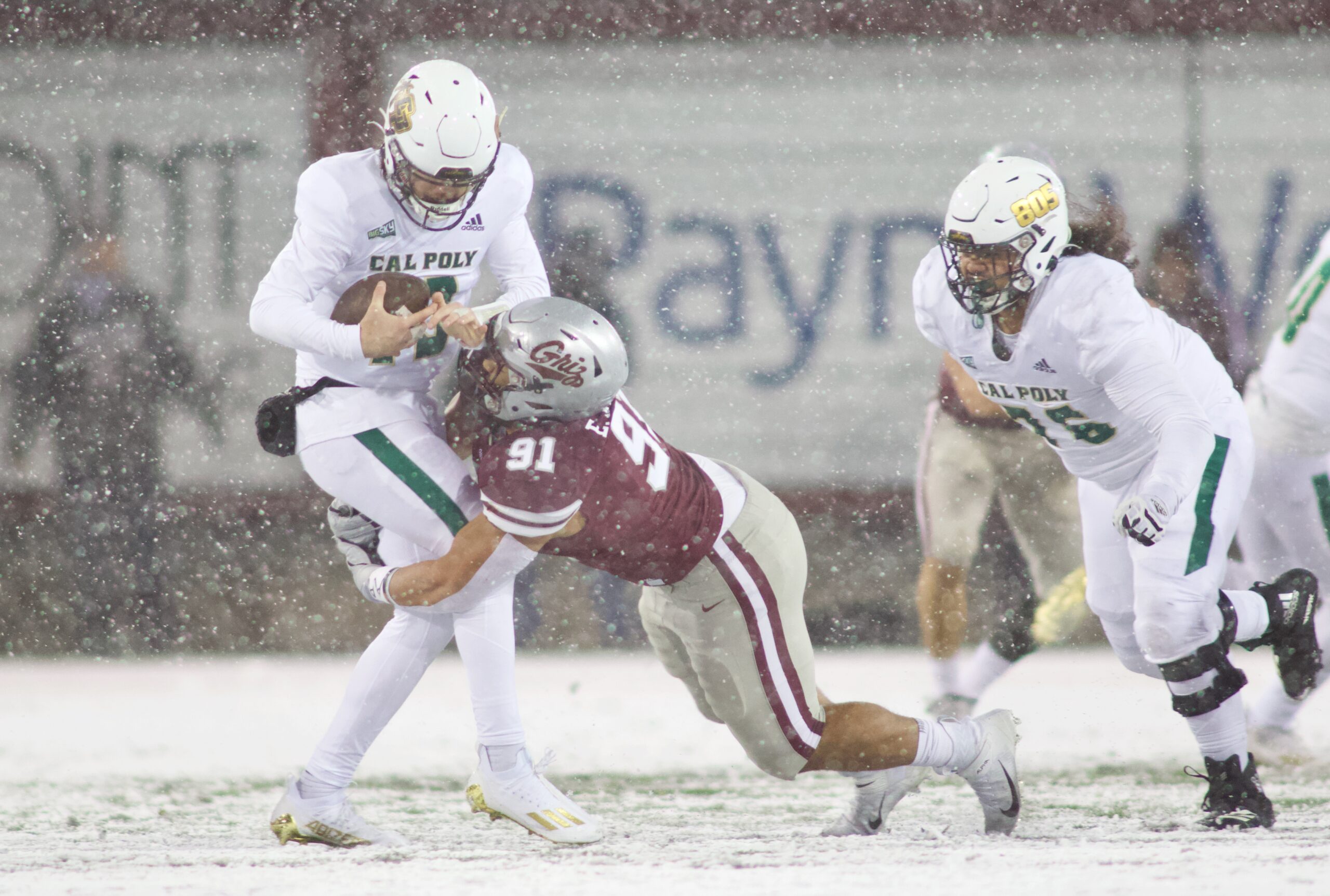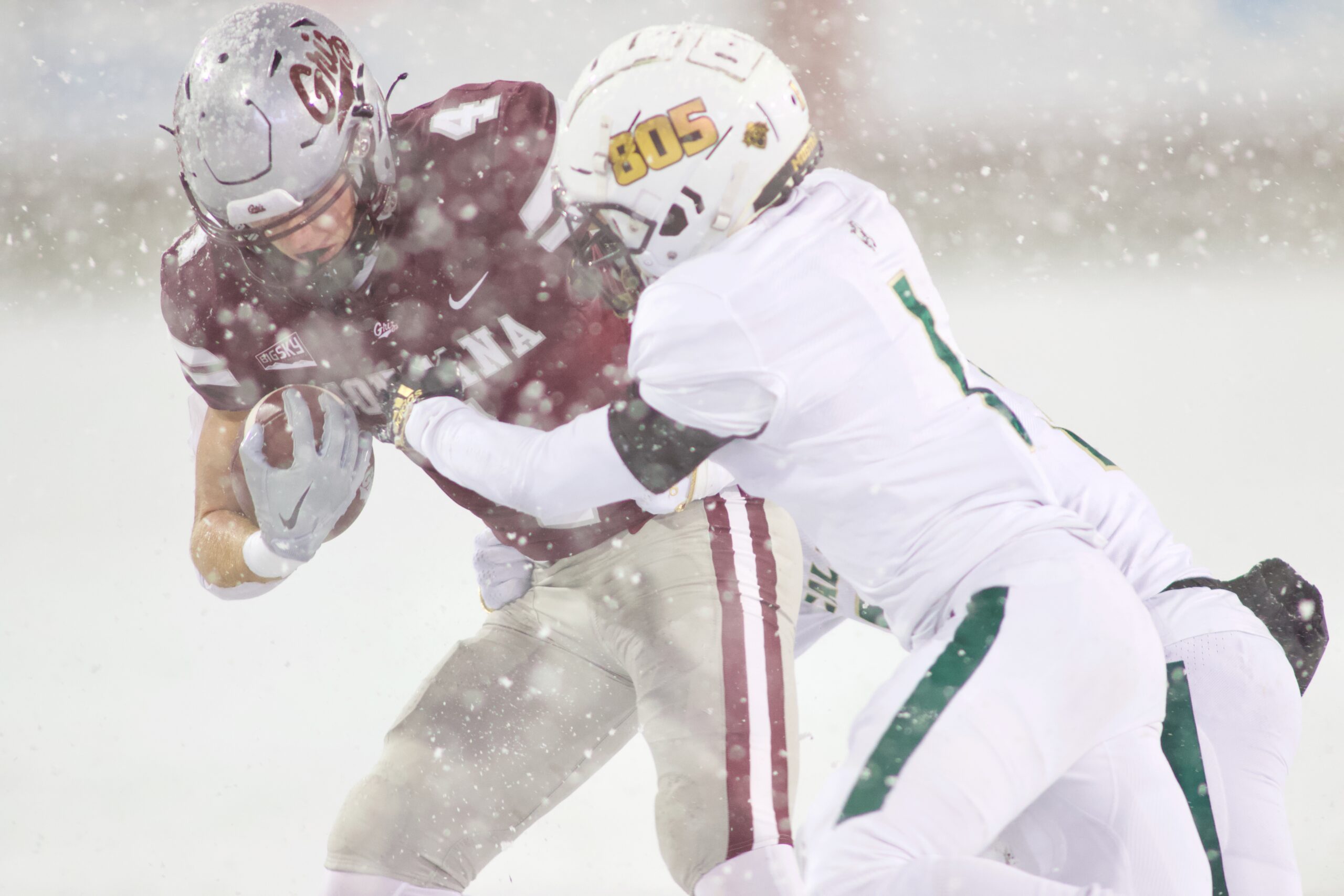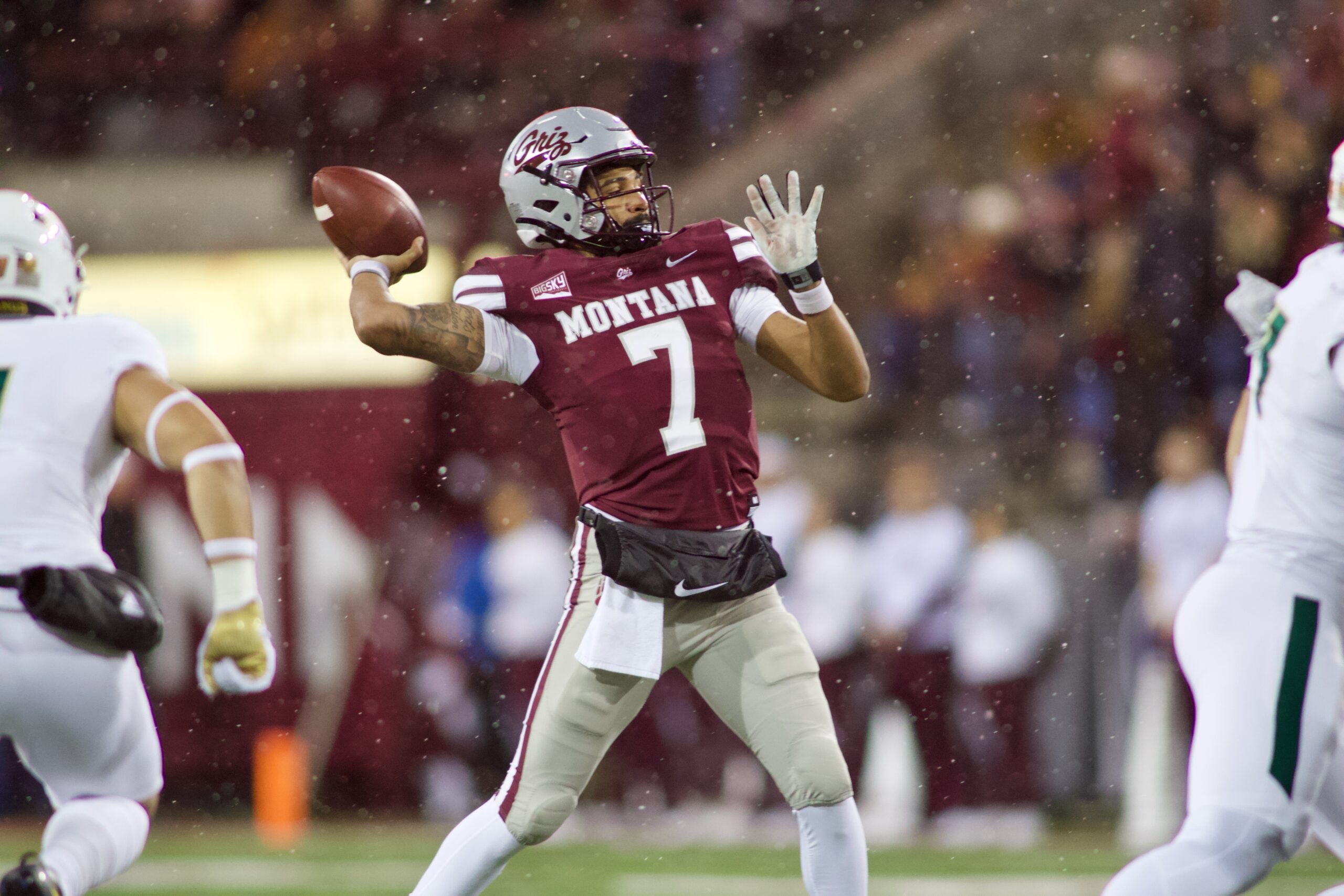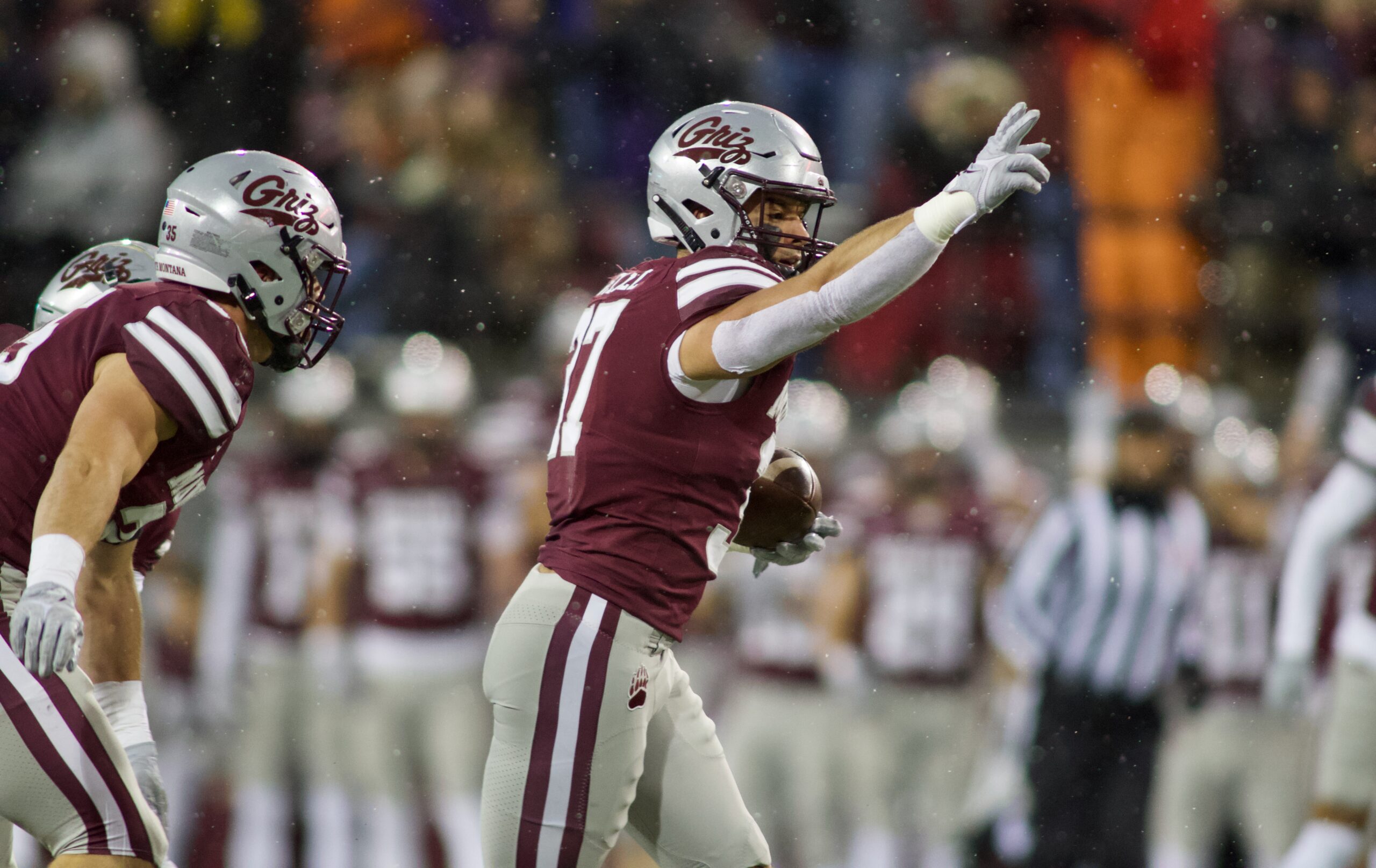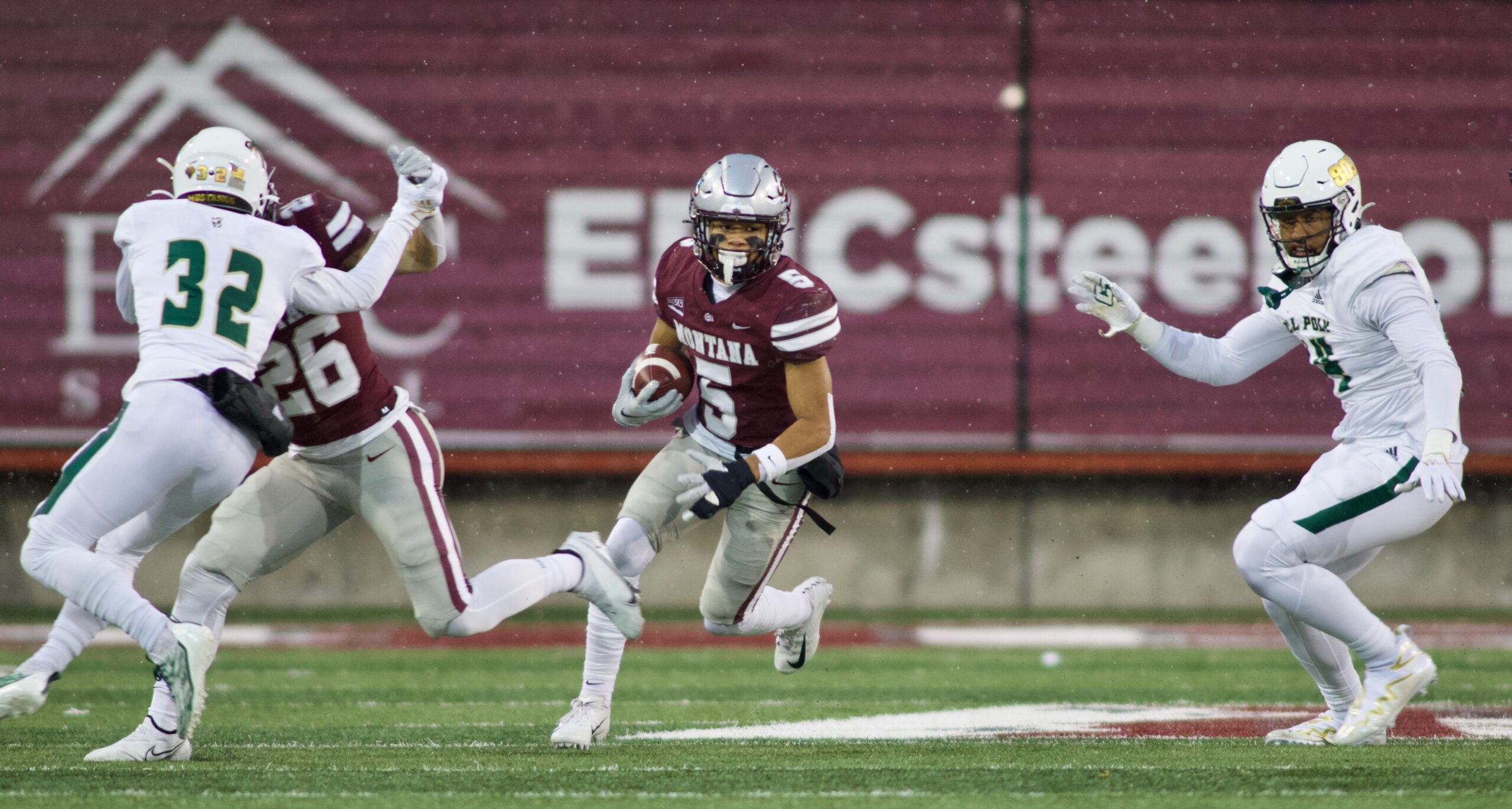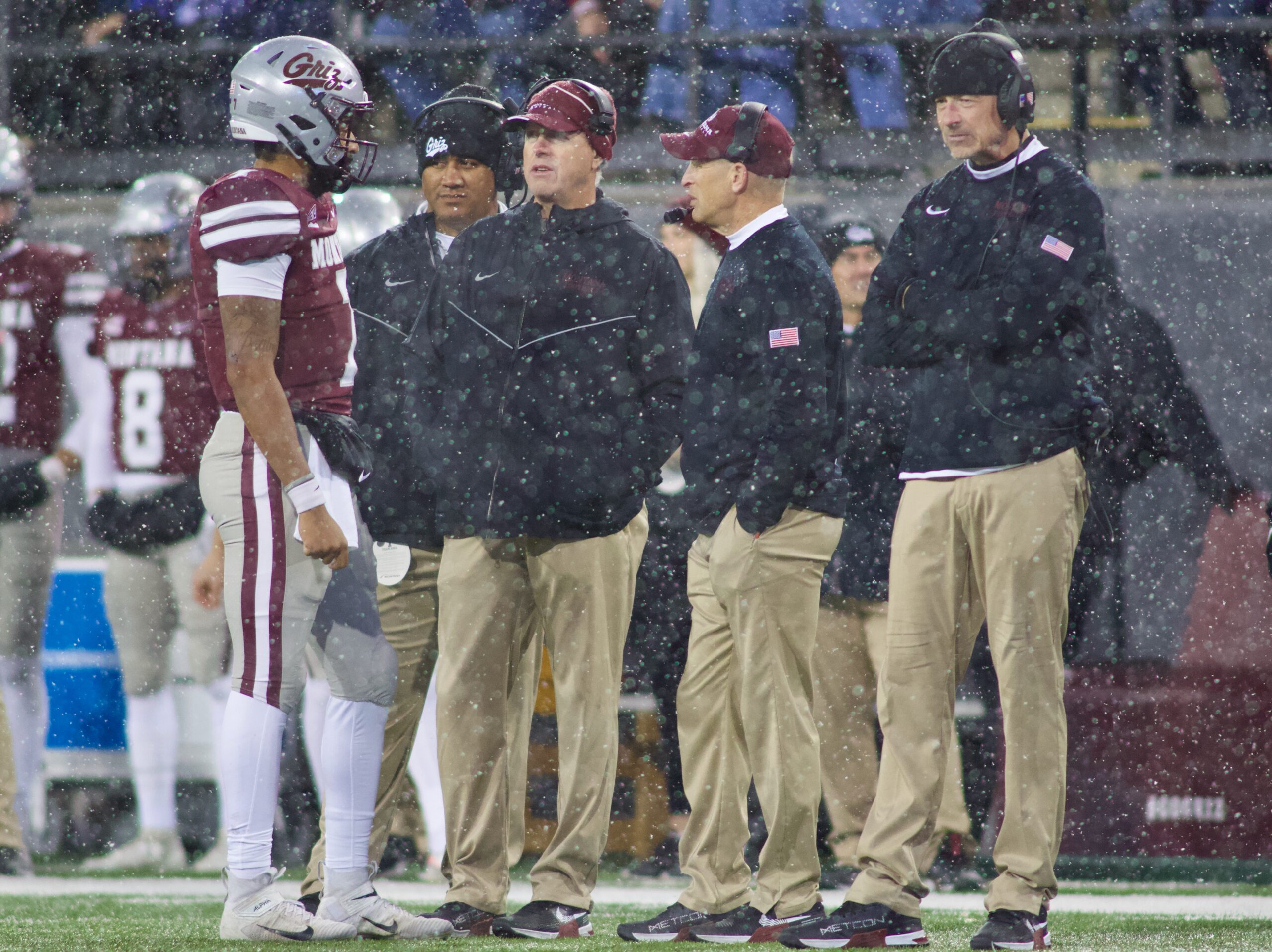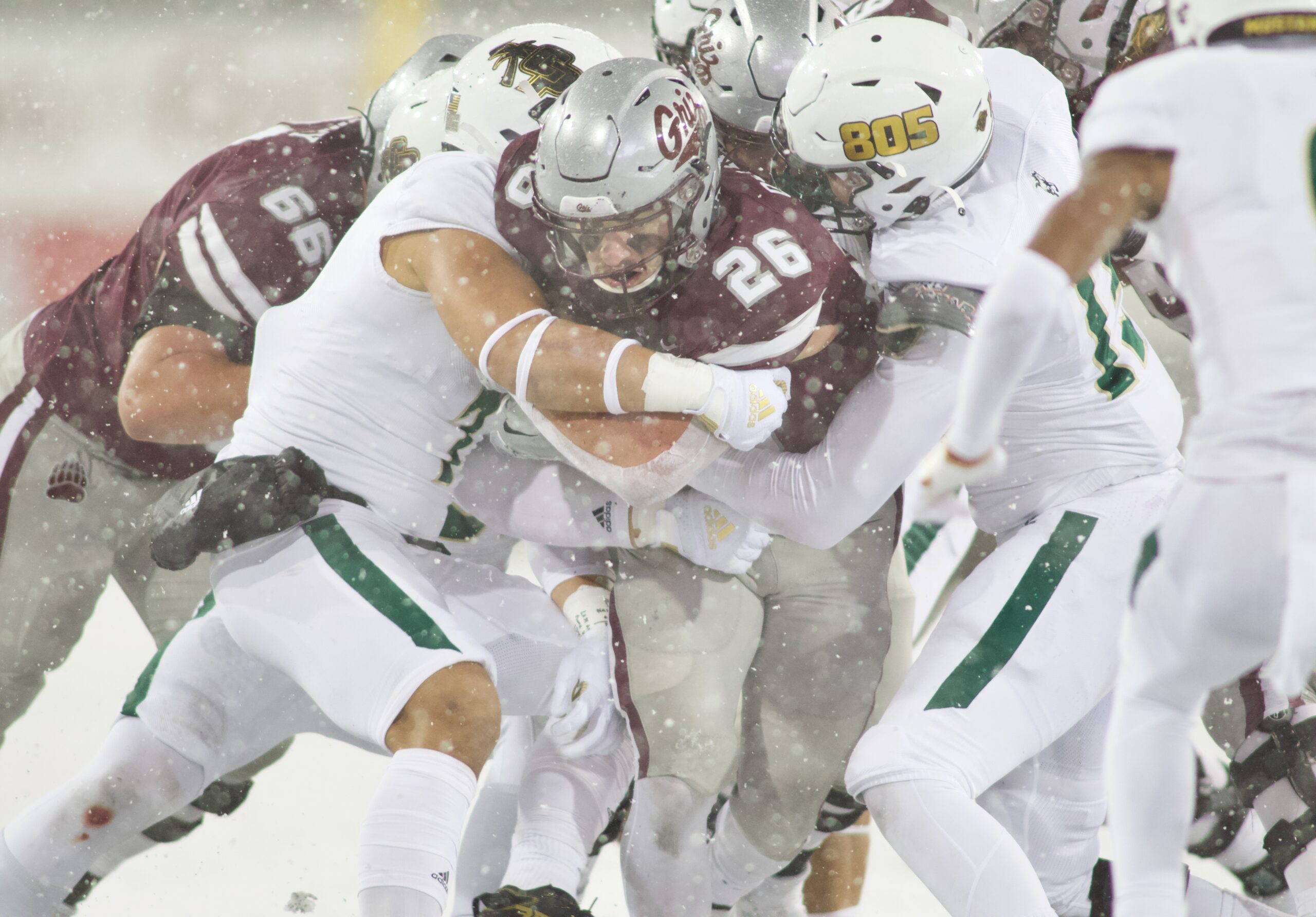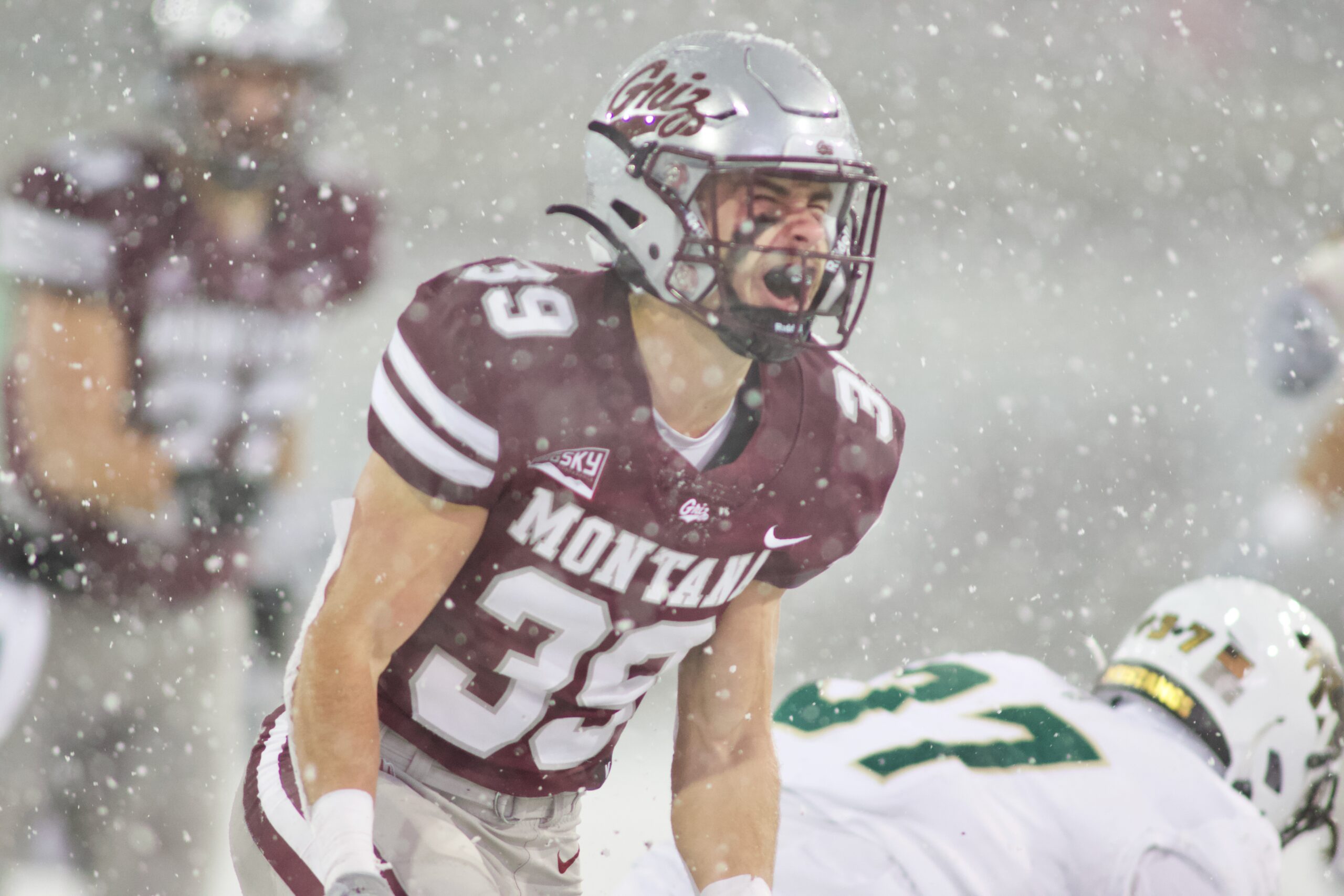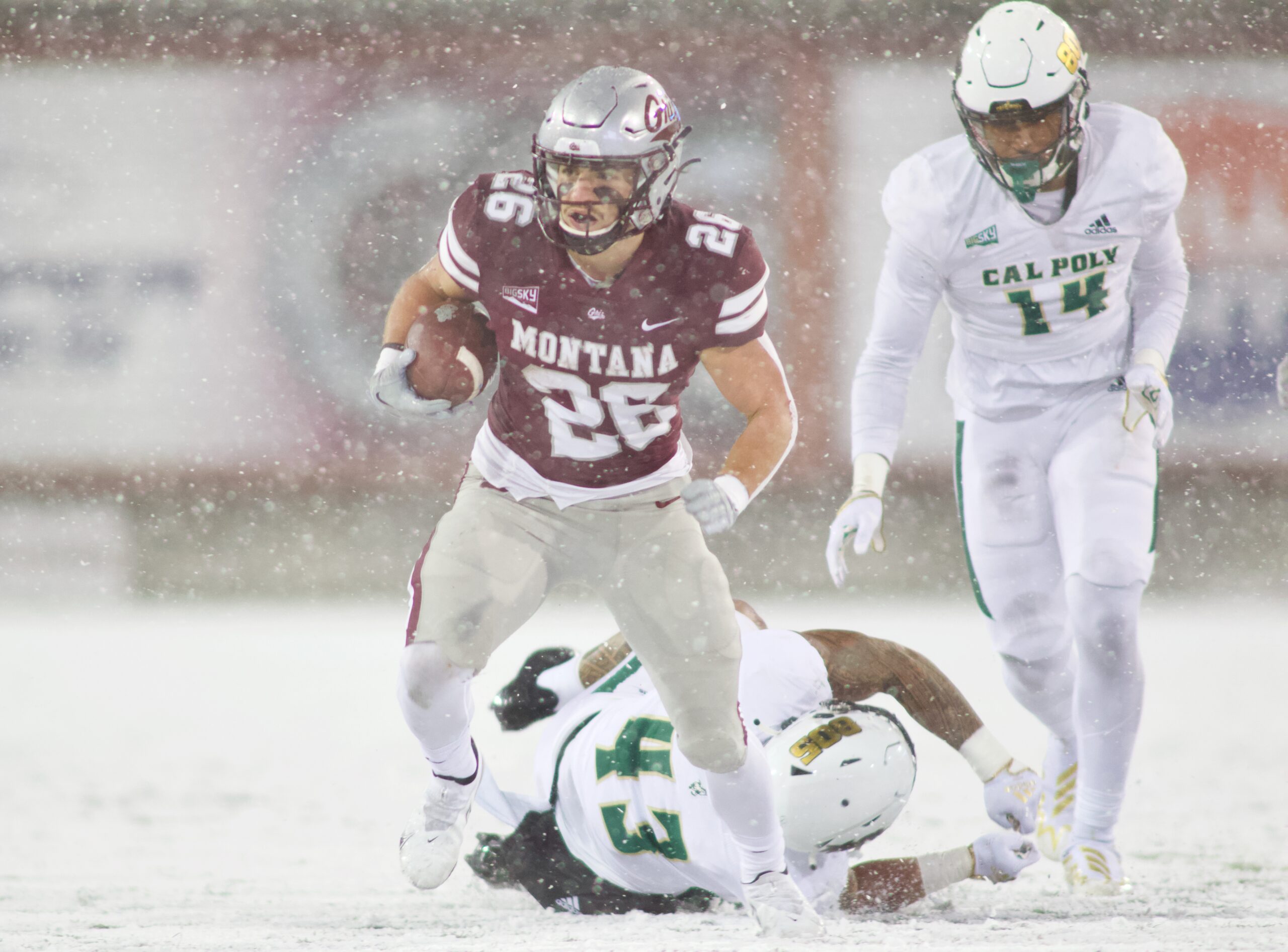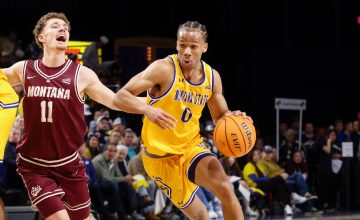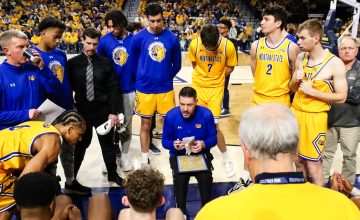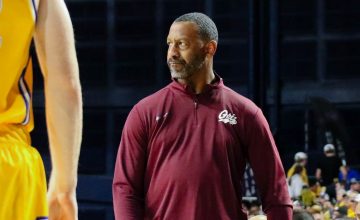MISSOULA – Football weather – that which turns games from contest into legend and forces rhapsody from the lips of even the most taciturn coaches – arrived in Missoula with a flurry on Saturday.
Someone arriving fashionably late and approaching Washington-Grizzly Stadium from the West would have seen the pregame fireworks reaching their brilliant fingers above the trees of the University district, adding smoke to the low gray sky and seeming to call down the snow.
It arrived shortly after, a twisting, shifting curtain in the stadium floodlights, the big flakes providing the backdrop as the Montana Grizzlies took out a month’s worth of frustration and disappointments on the hapless and humiliated Cal Poly Mustangs in a record-setting 57-0 win.

It had been, until Saturday, a mild fall in Missoula, one that had seen the Grizzlies start fast and then lose three straight games in the last four weeks to fall from a high of No. 2 in the national poll all the way down to 16th, all the while the doubters arguing even 16 was too high.
When the snow finally arrived on Saturday, it fell fast, covering up the field before the first quarter was even half over and leaving the story of the game to be written in its whiteness – the tamped-down crop circles of the huddles (at least for the visitors), the distinct looping, mirrored tracks of wide receivers and defensive backs, the blazed slashes of activity where a play ended and someone got dragged down.
Every shot of the stands – at least in the first half, before probably 80 percent of what was generously announced as a sell-out crowd of 25,684 left the stadium – looked computer-generated to go right into one of the University of Montana’s new, slickly-produced, “we’re not the same old University of Montana” streaming ads.
The weather was the kind of weather, you could fairly guess, that Montana running back Nick Ostmo likes. An ankle injury in 2021 robbed Ostmo of the opportunity to build on a 2019 season in which he played in all 12 games as a true freshman, and his 92 yards against Idaho State earlier this season stood as his career-high entering the game.
On Saturday, he surpassed that – easily -before the third quarter ended, with his 147 yards from that third period adding to his 74 from the first half to give him 221 rushing yards for the game, the sixth-highest single-game total in Montana history. He added two catches for 39 yards, leaving him with 260 total yards from scrimmage.
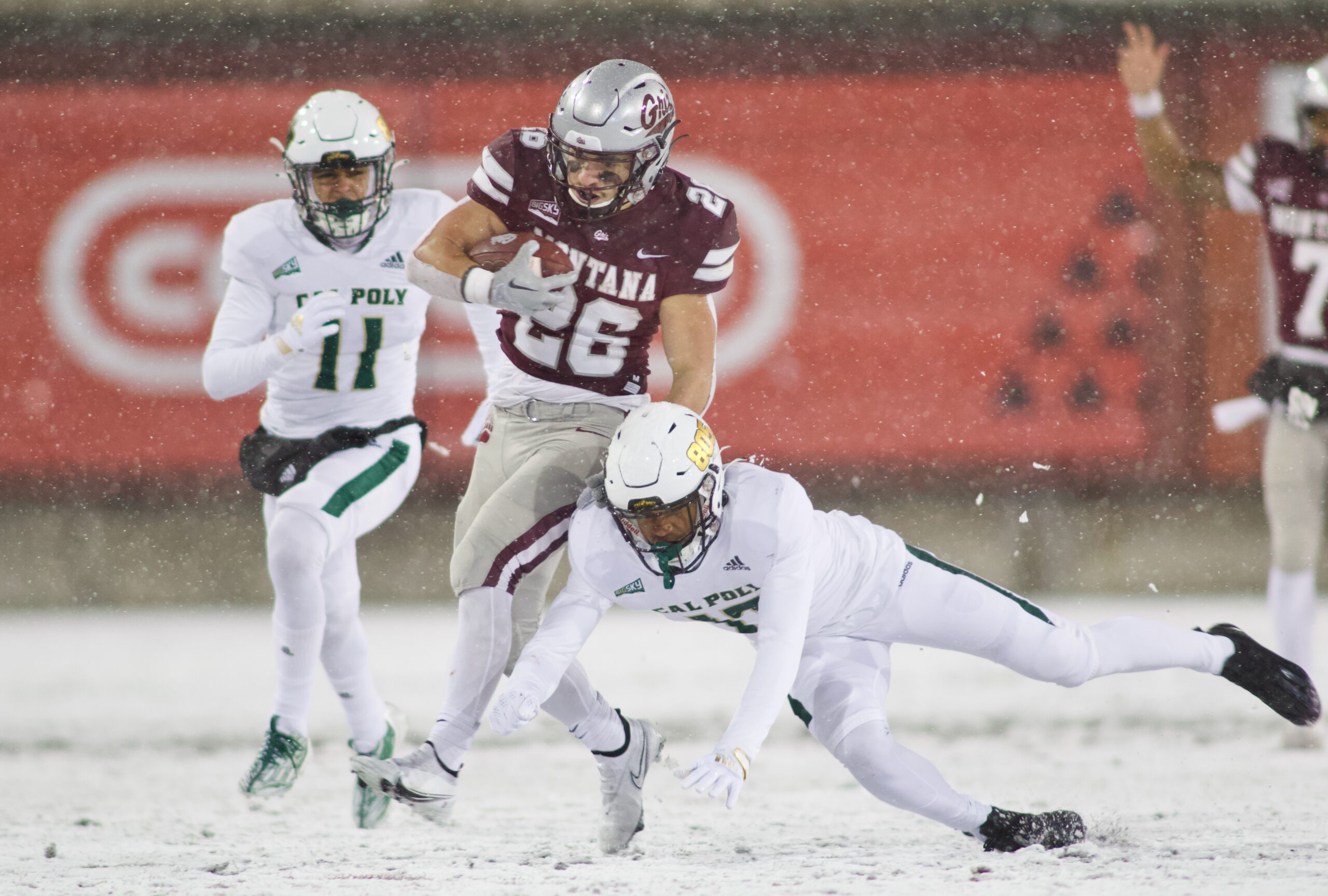
Ostmo’s effort spearheaded a dominant offensive effort by the Griz, an effort festooned with career-best marks, jaw-dropping numbers and new records, each accentuated by an inferior opponent completely overwhelmed by the matchup.
Montana’s 37 first downs were a new school record, and the Grizzlies’ 695 total yards were second in program history. The Griz offense never punted, and Montana outgained Cal Poly 695 to 192.
“I thought we played well on both sides of the ball, and in the kicking game,” Montana head coach Bobby Hauck said. “It was a dominating effort by our team. I’ve got a lot of admiration for the guys in our locker room, how they are willing to invest and prepare and play to win, like they’ve done every week over the last month, and it was good to see us come out with more points than the other team on the scoreboard.”
Nick Ostmo for two hundo in the SNOW 🔥❄️pic.twitter.com/J9GOMLlLU4
— The Transfer Portal CFB (@TPortalCFB) November 6, 2022
Ostmo – solid at 6-0 and 218 pounds, playing sleeveless in the cold like almost all of his teammates – spins and barrels forward like the field is tilted downhill, looking for contact, running into the back of the pile and then bouncing out of it one way or the other. He had Cal Poly defenders making business decisions even in the first half, stepping out of tackles or slowing up as they closed in on him, not wanting to meet him head-on.
And the first time a Cal Poly defender slipped on the snowy turf, business decisions became the norm for an over-matched, over-powered Mustang defense.
Ostmo gained five or more yards on 15 of his 26 carries and provided the dashing finale to his day on his 23rd tote, avoiding a desperate diving tackle attempt at the line of scrimmage and churning to his left, leaving a strongly marked line of tracks in the snow like a MotoGP rider going around a curve, for a 22-yard score that took him over 200 yards for the day.
“Nick was special today, by the way. That was as good a performance as I’ve seen here since Chase Reynolds did it in the snow against App State,” Hauck interjected during the post-game press conference (remember what I said about weather and rhapsody and taciturn coaches).

As an exhausted Ostmo raised his arms to the heavens in the southeast corner of the stadium after that last touchdown run, quarterback Lucas Johnson was the first to embrace him. Without Ostmo’s big day, Johnson would have been the story of the game after he threw for 262 yards – the most he’s had in his Montana career – on 17 of 29 passing with three touchdowns and one interception.
Johnson struggled in UM’s last home loss against Idaho on October 15 (Montana’s last home game) before getting injured early in their loss to Sacramento State and missing the rest of that game, as well as last week’s loss to Weber State. Early-season Lucas Johnson was poised and calm, moving around the pocket to manipulate throwing lanes.
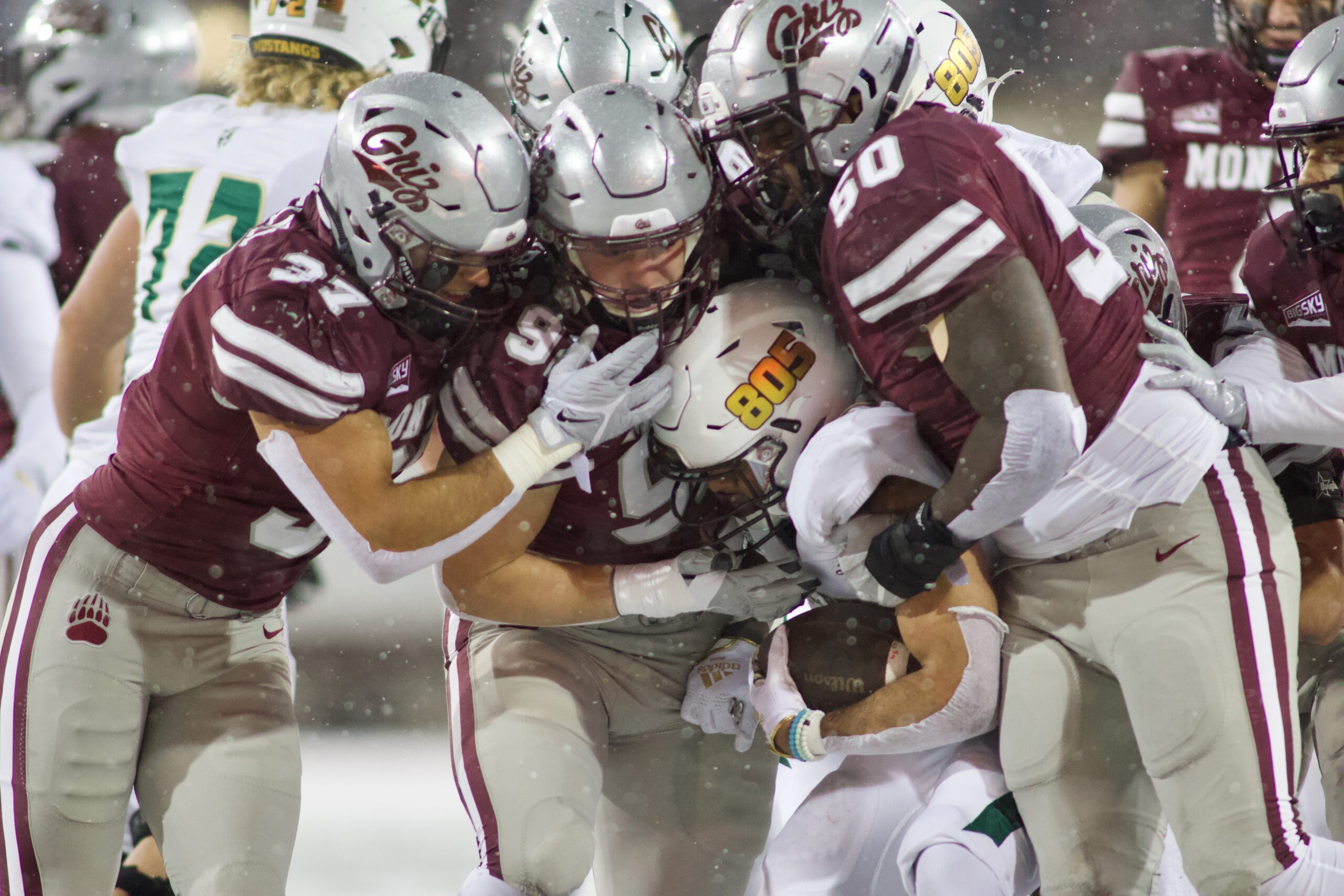
On Saturday, he seemed to have recovered that part of his game – hitting touchdown throws of 15 yards to Mitch Roberts, 20 yards to Xavier Harris (before the sophomore left with an injury) and 22 yards to Ryan Simpson.
He also recovered his post-game cool; For example, when the signal-caller from San Diego stared down his teammate Braxton Hill when Hill said “We like to say they have cold hands; they’re from California” as he attempted to explain why Cal Poly never seemed up for the game.
And the Mustangs never did. It was obvious early on that their best chance to score would be if one of the Griz defenders lost track of their all-white uniforms in the swirling haze of snow. Cal Poly receiver Chris Coleman, who had four catches for 49 yards after entering the game averaging 97.5 yards per contest, summed up the game in one late play on which he took about five steps on a screen pass that was targeted for him, sticking out a hand on the incompletion and generally looking determined to move as little as possible.
Reserve running back Isiah Childs nearly gave the Griz two 100-yard rushers despite not seeing the field until the fourth quarter, running for 80 yards on seven carries and breaking free for a 43-yarder TD. His 1-yard touchdown provided the final margin.
Griz quarterbacks – they used three: Johnson, Kris Brown and Daniel Britt – completed passes to 11 different receivers.
Of course, the question remains.
How much can the Grizzlies prove in a game like Saturday’s? How much did Montana prove?
The point of diminishing returns approaches quickly – beating Cal Poly, which is yet to win a Big Sky game this season as the transition from Tim Walsh’s triple option to Beau Baldwin’s gun spread — continues.
And by definition, the win can’t do much to elide the consequences of a three-game losing streak, nor help the Grizzlies regain what they’ve lost.
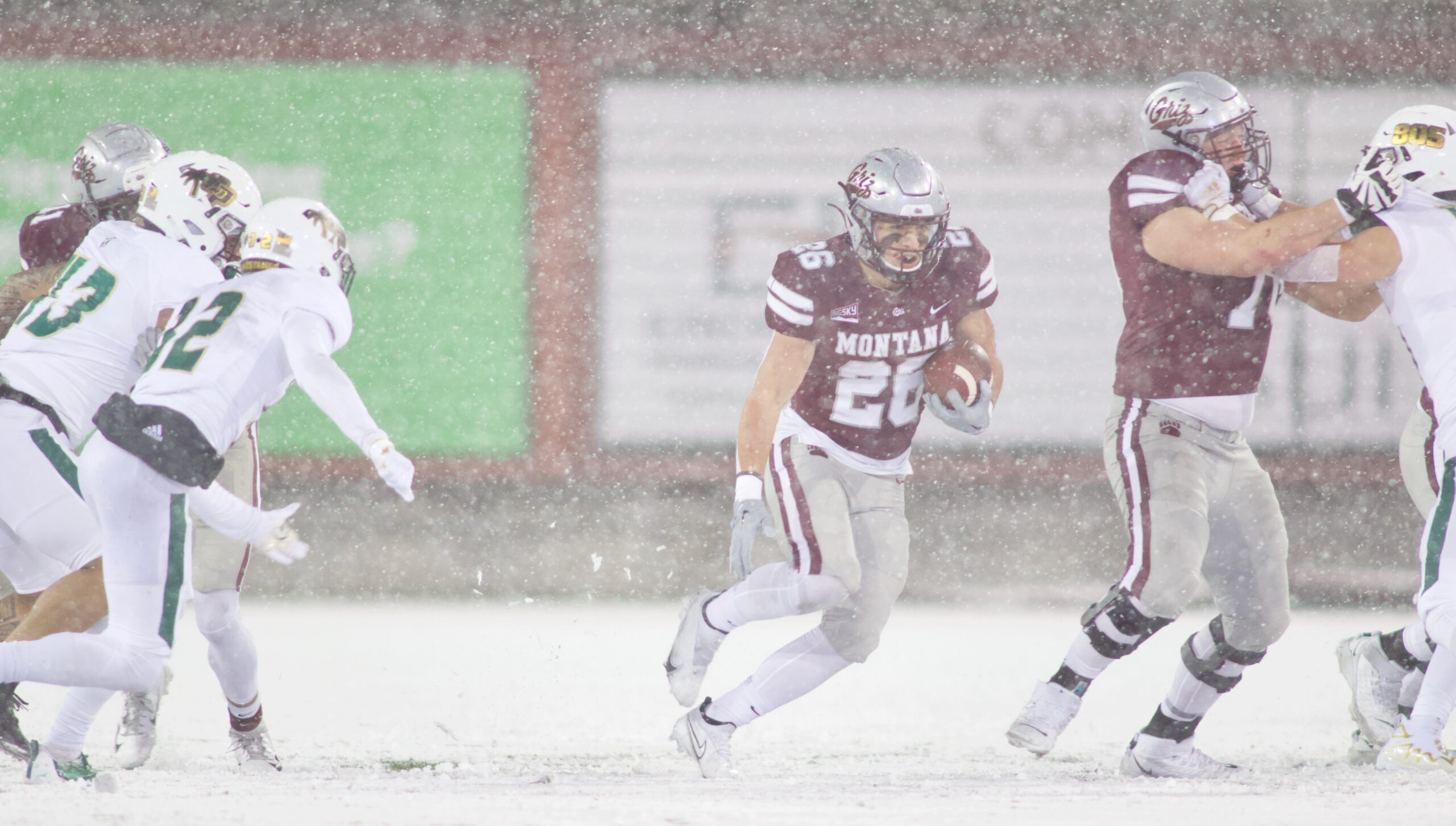
Take it from the group of fans ambling, fashionably late, across the walking bridge to campus as the game kicked off.
You lose three games in a row in this conference…, one said, trailing off.
We’re not the big kids on the block anymore, came the realization.
That’s true, and beating Cal Poly by 57 rather than 27, out-gaining the Mustangs by 500 instead of 200, does very little to restore the previous state of affairs.
In a way, the snow, even more than the win, was the best thing that could have happened to the Griz this week – a change of fortune, a fresh start, a reminder, perhaps, that the rest of the season lies in front of them, pristine and untouched, waiting for the rest of the story to be written on it.
Photos by Brooks Nuanez. All Rights Reserved.
